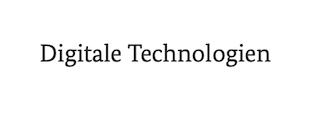CO2ptiMat
CO2ptiMat employs digital solutions to enable more environmentally friendly production methods in the plastics industry
The plastics industry is facing major economic and social challenges. In view of the growing awareness of environmental problems and the demand for sustainable solutions, it is crucial for companies to find ways to make their products and production processes more environmentally friendly.
For companies in the plastics industry in particular, resource-saving production is an important task. The rising use of recycled materials, which offers considerable potential for more sustainable production, plays a key role here. However, switching from conventional materials to recycled materials and ensuring product quality and productivity is not always easy. This is where CO2ptiMat comes in. The project aims to develop innovative solutions that support companies in their efforts to use more sustainable materials without neglecting the financially relevant aspects of their business. CO2ptiMat is pursuing a holistic approach to a greener and more sustainable plastics industry by integrating digital technologies and linking ecological and financial aspects.
The project seeks to enable companies in the plastics industry to continuously monitor their emissions, provide data for reporting to authorities, customers and cross-industry platforms, and make informed decisions for an optimised material mix and more efficient process management. This not only contributes decisively to the ecological transformation of the economy but also establishes the foundation for a circular economy and circular value creation cycles in the plastics industry.
CO2ptiMat is also committed to helping companies fulfil increasingly stringent regulatory requirements and reporting obligations. Regulations such as the Plastic Tax within the scope of the EU Green Deal and the Corporate Sustainability Reporting Directive (CSRD) require precise recording and reporting of sustainability measures. CO2ptiMat aims to develop a pioneering solution based on primary data that enables accurate emissions measurement at the product level. Not only is it possible to calculate the product carbon footprint (PCF), it is also possible to monitor relevant production KPIs and make recommendations for optimising the material mix and process management. Plastics processing companies can utilise this data to disclose CO2 consumption figures and streamline their production processes, for instance.
Consortium:
- INC Invention Center (part of KEX Knowledge Exchange AG)
- Meraxis Services GmbH
- Fraunhofer-Gesellschaft represented by the Fraunhofer Institute for Production Technology (IPT)
- Rehau Industries SE & Co. KG
- Terdex GmbH
- Recommend this page:
- Print view

